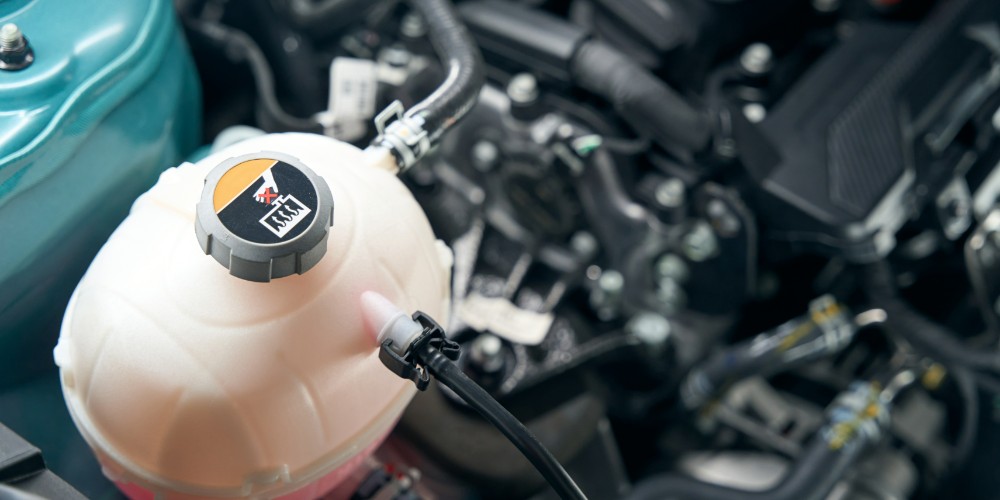Car dealerships, with their vast repositories of sensitive customer data and financial transactions, are increasingly becoming targets for cybercriminals. This article explores effective strategies to safeguard your car dealership from potential cyber threats, ensuring the integrity of your data and the trust of your customers.
Recognising the threat landscape
The first step in protecting your dealership is understanding the types of cyber threats you may face. These can range from phishing scams aimed at obtaining sensitive information to ransomware attacks that lock you out of your systems until a ransom is paid. Other common threats include malware, which can disrupt or damage your systems, and DDoS (Distributed Denial of Service) attacks, designed to overwhelm your website with traffic, rendering it inaccessible.
Implementing robust cybersecurity measures
Secure your IT infrastructure
A secure IT infrastructure is the backbone of your dealership’s cybersecurity. Employ advanced firewalls and endpoint security solutions to create a formidable first line of defence against cyber threats. Regularly update your antivirus and anti-malware software to detect and neutralise threats promptly. Encryption should be standard practice for all sensitive data; this includes customer information, financial records, and any data transmitted over the Internet. Additionally, secure your Wi-Fi networks and ensure they are not publicly accessible, or if public access is necessary, use a separate network for sensitive business operations.

Regular software updates
Cyber attackers frequently target software vulnerabilities. Ensure all your applications, operating systems, and network tools are up-to-date with the latest security patches. Automate software updates where possible to guarantee immediate application. This practice closes loopholes that cybercriminals exploit and enhances your defence mechanisms.
Strong password policies
The implementation of robust password policies is crucial. Mandate the use of complex passwords that combine letters, numbers, and special characters, and require these passwords to be changed on a regular basis. Implement multi-factor authentication (MFA) across your systems, adding an extra verification step that significantly increases account security. Educate your employees on the importance of password security and consider using password management tools to maintain strong, unique passwords for different systems.
Regular security assessments
Conduct regular security assessments to identify and rectify vulnerabilities within your IT infrastructure. This includes penetration testing, where ethical hackers simulate cyber attacks to test your defences. Regular audits can also ensure compliance with data protection regulations, which is crucial for avoiding legal repercussions and fines.
Data protection and privacy
GDPR compliance
Adherence to the General Data Protection Regulation (GDPR) is essential for dealerships operating within the UK and EU. This includes ensuring transparency in data collection practices, securing explicit consent from individuals before collecting their data, and providing them with access to their data upon request. Implement processes for quickly responding to data breaches and notifying affected individuals and regulators in compliance with GDPR timelines.

Customer data management
Practice data minimisation by only collecting essential information and securely disposing of it when no longer needed. Implement strict access controls to ensure that only authorised personnel can access sensitive customer data. Regularly audit your data storage and processing activities to identify and mitigate any risks. Encryption, both at rest and in transit, should be standard for all personal data.
Incident response planning
An effective incident response plan is critical for minimising the impact of cyber attacks. This plan should detail specific procedures for detecting, reporting, and responding to security incidents. Key components include:
- Detection and identification: Implement monitoring tools and services to detect unusual activity that could indicate a security breach.
- Containment and eradication: Once a threat is detected, contain it to prevent further damage. This may involve isolating affected systems or taking them offline.
- Recovery: Develop a recovery plan to restore affected systems and data from backups. Test your backup systems regularly to ensure they can be quickly and effectively deployed in an emergency.
- Communication: Have a communication plan in place for notifying internal stakeholders, affected customers, and regulatory bodies if necessary. Clear, transparent communication can help maintain trust and minimise damage to your dealership’s reputation.
- Review and learn: After an incident, conduct a thorough review to identify what went wrong and how similar incidents can be prevented in the future. Use these insights to continuously improve your cybersecurity posture.
Cybersecurity insurance
Cybersecurity insurance is becoming an essential component of a comprehensive risk management strategy for businesses, including car dealerships. This type of insurance can provide financial protection against a wide range of cyber incidents, including data breaches, cyber extortion, business interruption, and the costs associated with crisis management and legal fees. When selecting a cybersecurity insurance policy, it’s important to:
- Assess your risks: Understand the specific cybersecurity risks your dealership faces. Consider the types of data you handle, your online presence, and your existing cybersecurity measures. This assessment will help you determine the level of coverage you need.
- Understand the coverage: Cybersecurity insurance policies can vary significantly in what they cover. Look for policies that cover both first-party losses (direct costs to your business, such as forensic investigation, data recovery, and business interruption) and third-party claims (liabilities to others, including legal defence and settlement costs).
- Incident response support: Many insurers offer access to cybersecurity experts and incident response teams as part of their policies. This support can be invaluable in the immediate aftermath of a cyber attack, helping you to respond effectively and minimise damage.
- Regular review and update: As your dealership grows and the cyber threat landscape evolves, your insurance needs may change. Regularly review and update your policy to ensure it continues to meet your needs.

Partnerships and collaboration
In the fight against cyber threats, partnerships and collaboration play a pivotal role. Engaging with other businesses, industry groups, and cybersecurity experts can provide valuable insights and enhance your dealership’s security posture. Consider the following strategies:
- Join industry associations: Automotive and cybersecurity industry associations often provide resources, best practices, and networking opportunities related to cybersecurity. Membership can also give you access to collective bargaining power for cybersecurity tools and services.
- Collaborate with technology providers: Establish strong relationships with your technology and security service providers. These partnerships can ensure you have access to the latest security technologies and insights into emerging threats.
- Participate in information sharing platforms: Information-sharing platforms and forums allow businesses to share real-time information about threats and vulnerabilities. Participating in these platforms can provide early warnings about new types of cyber attacks and advice on protective measures.
Steering clear of cyber threats
Cybersecurity is an ongoing journey, not a one-time task. By implementing robust security measures, staying informed about potential threats, and fostering a culture of cybersecurity awareness, you can significantly reduce the risk of cyber attacks on your car dealership. Remember, protecting your dealership from cyber threats not only safeguards your business but also secures the trust and confidence of your customers.
🚗 You might like this guide: 8 Things to Consider When Buying Car Insurance.





